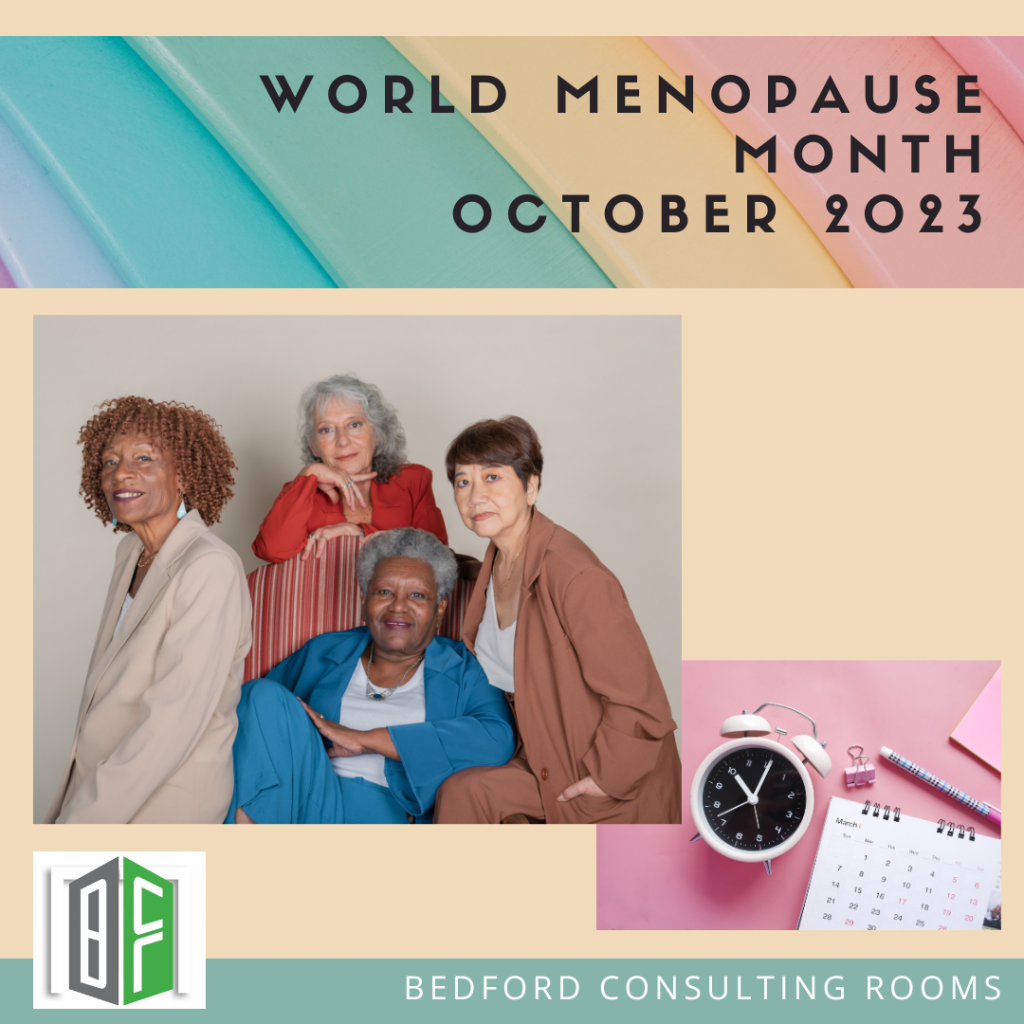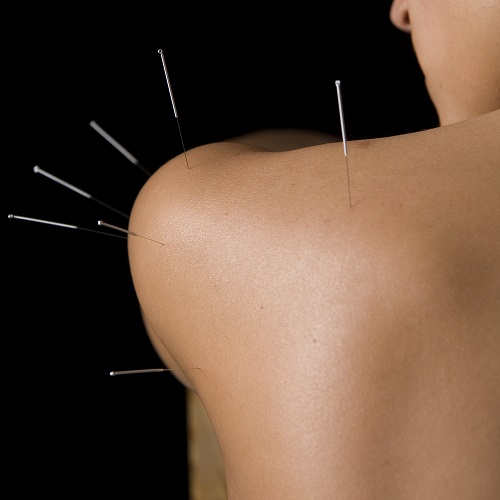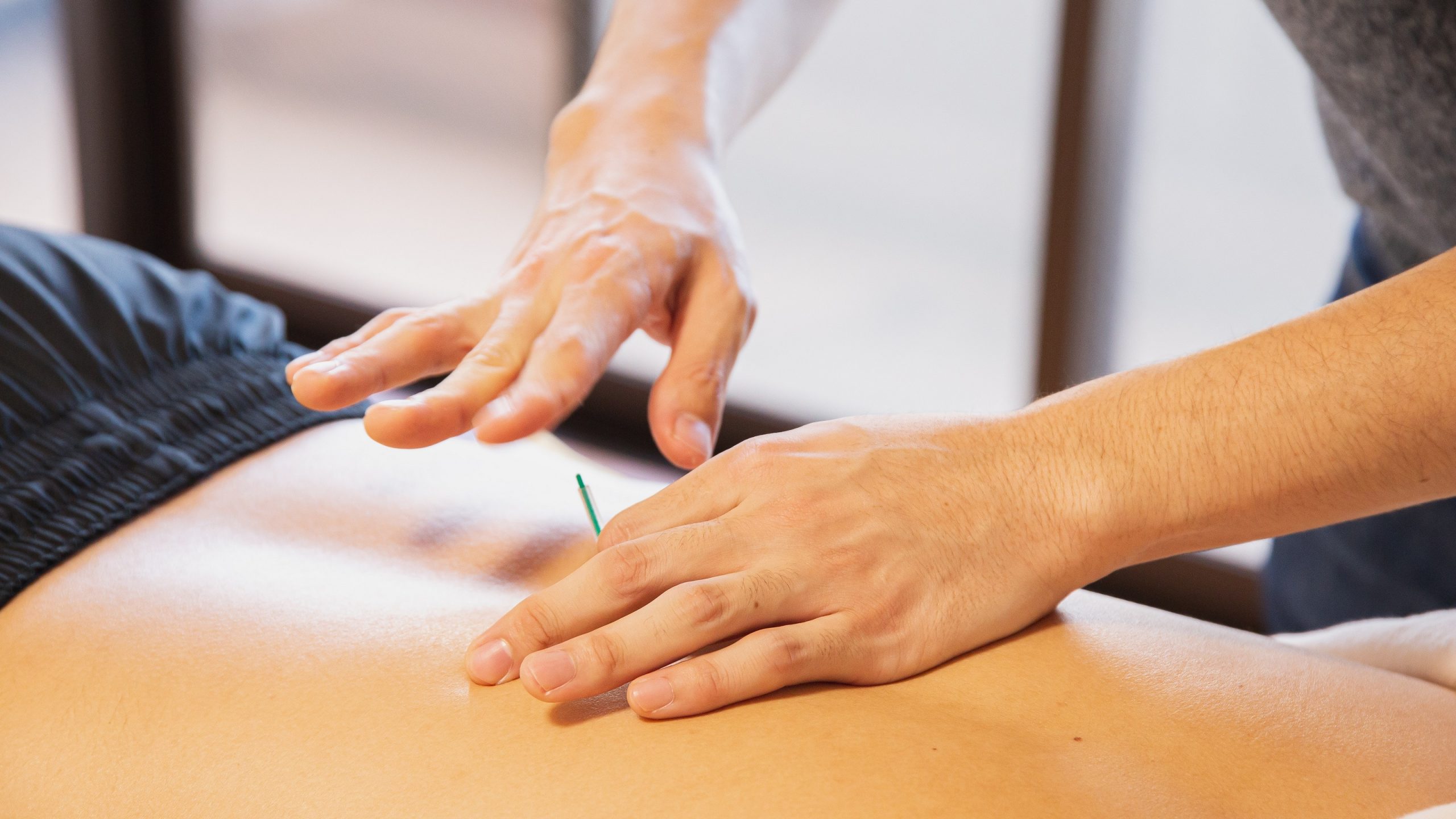World Menopause Month – Acupuncture
It is World Menopause Awareness Month!
Acupuncture and the Menopause: Research and Mechanisms of Action
Important to Know:
Chronic health conditions should be addressed under direct medical supervision of your GP or consultant, and acupuncture would be an adjunct or complement to usual care – we advise that you let you doctor know when you use this approach

Acupuncture and Menopause: The Approach
Acupuncture has long been used to address menopausal symptoms alongside conventional treatment, and the research base into this in increasing, with a google scholar search showing thousands of articles.
Here we’ll outline some of the main research findings and models derived from studies that show mechanisms of action as to how acupuncture may affect menopausal symptoms.
NOTE: Systematic Reviews or Meta Analyses of a large number of high-quality research studies are the very best way to be able to say to what extent a given treatment can address a condition, symptom, or set of symptoms. The next best level of evidence is the individual Randomised Controlled Study (RCT) which uses a systematic technique to compare two or more groups of patients receiving different treatments (or a treatment against a “control”, or no treatment). More detail on research, and full references for this post, follow at the base of the page.
Acupuncture and Menopause: The Research
Many randomised controlled trials, and a number of systematic review and meta-analyses have looked at acupuncture for various symptoms of menopause, some comparing it to control, sham or other treatment approaches.
General Menopause Symptoms:
• An RCT study published in the BMJ found “standardised and brief acupuncture treatment produced a fast and clinically relevant reduction in moderate-to-severe menopausal symptoms during the six-week intervention” (n=70; Lund et al, 2019, Denmark). The points used in the protocol were CV-3, CV-4, LR-8, SP-6 and SP-9
• Recently, Ebrahimi et al (2020) examined a number of complementary approaches for menopause, including 18 for acupuncture in their systematic review, concluding that acupuncture “improved sleep quality, decreased vasomotor symptoms, reduced symptoms of depression and anxiety, improved dry eye and sleep disturbances, improved metabolic syndrome, reduced irritability and hot flashes, enhanced quality of life, and reduced menopausal symptoms.”
Memory and Cognition:
• Studies have shown acupuncture may help improve memory in menopausal women, (Tang et al 2013). This is thought to be due to acupuncture raising oestrogen levels in the blood (specifically serum estradiol levels) e.g. per Shen et al (2005). Studies in animals support this theory – acupuncture has been shown to improve learning and memory by increasing brain oestrogen levels in rats (Tang et al,) 2013.
Hot flushes:
• Also known as “vasomotor symptoms”
• Acupuncture has been shown to reduce the number and severity of hot flushes in menopausal women (Wyon et al, 1995; Boroud et al, 2009; Chiu, 2015; Park et al, 2009). Per Wyona et al, (2004): “We suggest that acupuncture is a viable alternative treatment of vasomotor symptoms in postmenopausal women”.
• “This meta-analysis confirms that acupuncture improves hot flush frequency and severity, menopause-related symptoms, and quality of life (in the vasomotor domain) in women experiencing natural menopause.” Chiu et al, 2015.
• A recent systematic review of 23 RCTs (n=2302), and meta-analysis of 10 the these found acupuncture to reduce the frequency and severity of hot flushes, and improve quality of life. The researchers recommended that more high-quality RCTs should be performed (Jo et al, 2021).
Sleep:
• Studies have shown acupuncture to be beneficial to sleep in menopausal women (e.g. Wyon et al, 2003; Cohen et al, 2003). “Acupuncture is associated with a significant reduction in sleep disturbances in women experiencing menopause-related sleep disturbances”. Chiu et al, 2016.
• “Acupuncture using menopausal-specific sites holds promise for non-hormonal relief of hot flushes and sleep disturbances.” Cohen et al, 2003.
Quality of life:
• Studies have also looked at rating quality of life, and found improvements in this for acupuncture in relation to menopausal symptoms, for example anxiety, mood and energy, (Avis et al; Chu et al 2015, Kim et al, 2020).
Acupuncture and Perimenopausal Depression:
• A large systematic review and meta-analysis of 16 randomized controlled trials (n=2313 total) found that acupuncture to be safe and effective, with stable long-term effects. The researchers suggest a mechanism of action whereby acupuncture may modulate the brain network related to mood and emotions (limbic system), and they recommend it as a clinical option for perimenopausal depression.
Mechanisms of Action:
• Research into mechanisms of action indicates that acupuncture can modulate activity in many of the body’s regulatory systems, including the nervous system; endocrine system and influence the levels of different hormones and neurotransmitters (chemical signals) in the body, blood stream and brain (Stener-Victorin, 2006; Stener-Victorin and Wu, 2010; Gerhard et al, 1992).
• Effects on particular hormones in the blood: A systematic review of 15 studies, (n=1376) comparing acupuncture and hormone therapy, looking at clinical effects as well as blood measures of FSH, LH and estradiol: concluding acupuncture to be a safe and effective approach (He et al, 2021).
• Blood measures before and after a course of acupuncture showed increase estraiol (an oestrogen) and decreased follicle stimulating hormone and luteotrophic hormone (LH), (rises in which are responsible for menopausal symptoms). (Chiu et al, 2016; Xia et al, 2008; Qin, 2013). In menopause, the FSH rises and the oestrogen falls, a combination of which gives rise to the symptoms. Acupuncture is theorised to be mediating these hormones to give symptomatic relief.
• Studies have been examined the role of Calcitonin gene-related peptide (CGRP), which is elevated in menopausal women experiencing hot flushes (Sharma et al, 2010). Acupuncture can decrease the urinary secretion of this same substance, (Wyon et al,1995; Zijlstra et al, 2003), suggesting acupuncture may have a regulatory effect on the calcitonin system.
• Nervous System: Studies demonstrate acupuncture’s effects on the autonomic nervous system; in particular the body’s natural opioids (Li et al, 2013), which may contribute to acupuncture’s mechanism of action in menopausal hot flushes as due to regulating the changes in central opioid activity implicated in hot flushes (Wyon et al, 1995).
A Complementary Approach

There are good reasons why acupuncture may be a good choice for a complement to your medical treatment in perimenopause and menopause, and ideally with your permission, the acupuncturist will liaise with your GP. Acupuncture has a very good safety profile when carried out by an experienced, qualified practitioner.
We offer a free 15 minute (pre-booked) in-person, telephone or video consultation for you to have a chat with one of the acupuncturists, and a realistic appraisal of what acupuncture may be able to offer you.
Always choose a fully qualified acupuncturist, who is a member of a regulatory body like The British Acupuncture Council – such as our acupuncturists, Philip Rose-Neil, Louise England and Darren Haines. This guarantees they have had at least three years’ degree level training and are fully insured and experienced.
Contact us via our page today, to talk to us about acupuncture for you!
A note on research:
The references for the research are provided below. When reading health research, it is important to know that Systematic Reviews or Meta Analyses of a large number of high-quality research studies are the very best way to be able to say to what extent a given treatment can address a condition, symptom, or set of symptoms. The next best level of evidence is the individual Randomised Controlled Study (RCT) which uses a systematic technique to compare two or more groups of patients receiving different treatments (or a treatment against a “control”, or no treatment). In acupuncture trials, the nature of the control group is of particular interest as it is hard to blind a patient to whether they are having a needle inserted or not, and even more challenging to blind the researcher/team to this.
The means and quality of how research is carried out varies considerably from country to country, and in terms of how an intervention is compared to another intervention (or a control). Of note is the fact that “sham” acupuncture (where needles are placed in apparently inert locations rather than traditional acupuncture points) is not really an inert process as it has physiological effects, so that comparing sham and “true acupuncture” may therefore not give a clear picture alone; but and form a part of a research body where acupuncture versus no treatment, vs conventional treatment or vs a different approach/modality also form part of the evidence base.
The n= figure in a study tells you how many people were participants in the study, and usually the larger a study (when it is of good quality and design), the more likely it is to be reliable and applicable to larger populations. When (statistical) “significance” is discussed in view of studies it has a very particular meaning – it is the confidence in the data (using statistical tests) that tells us how likely a result could have just come about by chance. The lower the possibility of a chance result, the more likely it is due to the intervention in the experiment. When you are reading a trial/study, the “p” is the number telling us of significance, and this must be under 5% (or p less than 0.05) to mean we can say it is a (statistically) “significant” result.
REFERENCES:
Avis, Nancy E. PhD; Coeytaux, Remy R. MD, PhD; Isom, Scott MS; Prevette, Kristen BA; Morgan, Timothy PhD Acupuncture in Menopause (AIM) study: a pragmatic, randomized controlled trial. Menopause: Published Ahead-of-Print
Borud, Einar Kristian MD, MPH; Alraek, Terje PhD; White, Adrian MD, PhD; Fonnebo, Vinjar MD, MSc, PhD; Eggen, Anne Elise PhD; Hammar, Mats MD, PhD; Lotta Lindh RN; Theodorsson, Elvar MD, PhD; Grimsgaard, Sameline MD, MPH, PhD The Acupuncture on Hot Flushes Among Menopausal Women (ACUFLASH) study, a randomized controlled trial May/June 2009 – Volume 16 Issue 3.
Chiu, Hsiao-Yean RN, PhD; Hsieh, Yu-Jung RN, MSN; Tsai, Pei-Shan RN, PhD Acupuncture to Reduce Sleep Disturbances in Perimenopausal and Postmenopausal Women: A Systematic Review and Meta-analysis Obstetrics & Gynecology: March 2016 – Volume 127 – Issue 3 – p 507-515
Chiu, Hsiao-Yean RN, PhD; Hsieh, Yu-Jung RN, MSN; Tsai, Pei-Shan RN, PhD Acupuncture to Reduce Sleep Disturbances in Perimenopausal and Postmenopausal Women: A Systematic Review and Meta-analysis Obstetrics & Gynecology: March 2016 – Volume 127 – Issue 3 – p 507-515
Chiu, Hsiao-Yean RN, PhD; Pan, Chieh-Hsin RN, MSN; Shyu, Yuh-Kae RN, PhD; Han, Bor-Cheng PhD Tsai, Pei-Shan RN, PhD Effects of acupuncture on menopause-related symptoms and quality of life in women in natural menopause: a meta-analysis of randomized controlled trials Menopause: February 2015 – Volume 22 – Issue 2 – p 234-244
Chiu, Hsiao-Yean RN, PhD; Pan, Chieh-Hsin RN, MSN; Shyu, Yuh-Kae RN, PhD; Han, Bor-Cheng PhD Tsai, Pei-Shan RN, PhD Effects of acupuncture on menopause-related symptoms and quality of life in women in natural menopause: a meta-analysis of randomized controlled trials Menopause: February 2015 – Volume 22 – Issue 2 – p 234-244
Cohen, Susan M. DSN, C-FNP; Rousseau, Mary Ellen MS, CNM; Carey, Bonnie L. OMD, LAc, RN Can Acupuncture Ease the Symptoms of Menopause? Holistic Nursing Practice: November/December 2003 – Volume 17 – Issue 6 – p 295-299
Daniel, JM Effects of oestrogen on cognition: what have we learned from basic research? J Neuroendocrinol. 2006 Oct;18(10):787-95.
Ebrahimi, A., Tayebi, N., Fatemeh, A. and Akbarzadeh, M., 2020. Investigation of the role of herbal medicine, acupressure, and acupuncture in the menopausal symptoms: an evidence-based systematic review study. Journal of family medicine and primary care, 9(6), p.2638.
Freek J Zijlstra, Ineke van den Berg-de Lange, Frank J P M Huygen, and Jan Klein Anti-inflammatory actions of acupuncture. Mediators Inflamm 2003;12: 59-69.
Gerhard I, Postneek F. Auricular acupuncture in the treatment of female infertility. GynecolEndocrinol. 1992 Sep;6(3):171-81.
He, Q.D., Zhong, Z.H., Liu, M.N., Tong, Z.Y., Wu, Q.B. and Chen, M., 2021. Efficacy and safety of acupuncture vs. hormone therapy for menopausal syndrome: a systematic review and meta-analysis. The American Journal of Chinese Medicine, 49(08), pp.1793-1812.
Jo, H.R., Choi, S.K., Sung, W.S., Kim, E.J., Choi, S.J., Kim, D.I. and Noh, E.J., 2021. Efficacy Comparison of Different Acupuncture Treatments for Hot Flashes: A Systematic Review with Network Meta-Analysis.
Kim KH, Kang KW, Kim DI, Kim HJ, Yoon HM, Lee JM, Jeong JC, Lee MS, Jung HJ, Choi SM..Effects of acupuncture on hot flashes in perimenopausal and postmenopausal women-a multicenter randomized clinical trial. Menopause 2010; 17: 269-80.
Li, Q; Shi, G-X; Xu, Q; Wang, J; Liu, C-Z; and Wang, L-P Acupuncture Effect and Central Autonomic Regulation Evid Based Complement Alternat Med. 2013; 2013: 267959. Published online 2013 May 26.
Lund, K.S., Siersma, V., Brodersen, J. and Waldorff, F.B., 2019. Efficacy of a standardised acupuncture approach for women with bothersome menopausal symptoms: a pragmatic randomised study in primary care (the ACOM study). BMJ open, 9(1), p.e023637.
Park JE, Lee MS, Jung S, Kim A, Kang K, Choi J, Park J, Choi SM. Moxibustion for treating menopausal hot flashes: a randomized clinical trial. Menopause 2009; 16: 660-5
Shen, X., Du, Y., Yan, L., Xia, Y., Yan, H., Han, G., Guo, Y. and Shi, X., 2005. Acupuncture for treatment of climacteric syndrome–a report of 35 cases. Journal of traditional Chinese medicine= Chung i tsa chih ying wen pan, 25(1), pp.3-6.
Stener-Victorin, E. and Humaidan, P., 2006. Use of acupuncture in female infertility and a summary of recent acupuncture studies related to embryo transfer. Acupuncture in Medicine, 24(4), pp.157-163.
Stener-Victorin, E. and Wu, X., 2010. Effects and mechanisms of acupuncture in the reproductive system. Autonomic Neuroscience, 157(1-2), pp.46-51.
Sudhaa Sharma, Annil Mahajan, and Vishal R. Tandon Calcitonin gene-related peptide and menopause J Midlife Health. 2010 Jan-Jun; 1(1): 5-8.
Tang, C.L. Tang, H.W. Xie, Y.E. Song Electroacupuncture improves learning-memory of rats with low estrogen-induced cognitive impairment Sheng Li Xue Bao, 65 (2013), pp. 26-32
Wyon, Y.; Lindgren, R.; Lundeberg, T.; Hammar, M. Effects of Acupuncture on Climacteric Vasomotor Symptoms, Quality of Life, and Urinary Excretion of Neuropeptides among Postmenopausal Women. Menopause: 1995 – Volume 2 – Issue 1
Wyon, Y.; Lindgren, R.; Lundeberg, T.; Hammar, M. Effects of Acupuncture on Climacteric Vasomotor Symptoms, Quality of Life, and Urinary Excretion of Neuropeptides among Postmenopausal Women. Menopause: 1995 – Volume 2 – Issue 1
Wyon, Y.; Lindgren, R.; Lundeberg, T.; Hammar, M. Effects of Acupuncture on Climacteric Vasomotor Symptoms, Quality of Life, and Urinary Excretion of Neuropeptides among Postmenopausal Women. Menopause: 1995 – Volume 2 – Issue 1
Xia XH et al. Multicentral randomized controlled clinical trials about treatment of perimenopausal syndrome with electroacupuncture of sanyinjiao (SP 6) [Article in Chinese] . Zhen Ci Yan Jiu. 2008 Aug;33(4):262-6
Xiao, X., Zhang, J., Jin, Y., Wang, Y. and Zhang, Q., 2020. Effectiveness and safety of acupuncture for perimenopausal depression: a systematic review and meta-analysis of randomized controlled trials. Evidence-based Complementary and Alternative Medicine, 2020, pp.1-13.
Y Wyona, K Wijmaa, E Nedstranda & M Hammara A comparison of acupuncture and oral estradiol treatment of vasomotor symptoms in postmenopausal women Climacteric Volume 7, Issue 2, 2004 pages 153-164
Yuxi Qin, Jing He, Lu Xia, Hua Guo, Chengqi He Effects of electro-acupuncture on oestrogen levels, body weight, articular cartilage histology and MMP-13 expression in ovariectomised rabbits Acupunct Med 2013;31:214-221




